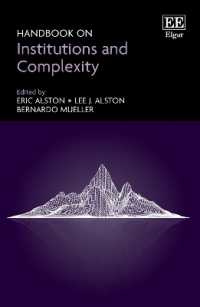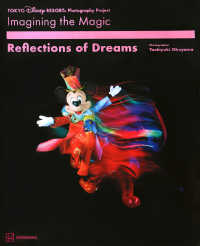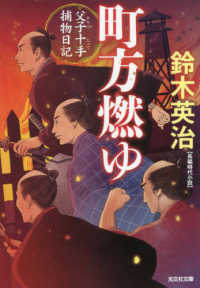Full Description
The 'Special Period' in Cuba was an extended era of economic depression starting in the early 1990s, characterized by the collapse of revolutionary values and social norms, and a way of life conducted by improvised solutions for survival, including hustling and sex-work. During this time there developed a thriving, though constantly harassed and destabilized, clandestine gay scene (known as the 'ambiente'). In the course of eight visits between 1995 and 2007, the last dozen years of Fidel Castro's reign, Moshe Morad became absorbed in Havana's gay scene, where he created a wide social network, attended numerous secret gatherings-from clandestine parties to religious rituals-and observed patterns of behavior and communication. He discovered the role of music in this scene as a marker of identity, a source of queer codifications and identifications, a medium of interaction, an outlet for emotion and a way to escape from a reality of scarcity, oppression and despair.
Morad identified and conducted his research in different types of 'musical space,' from illegal clandestine parties held in changing locations, to ballet halls, drag-show bars, private living-rooms and kitchens and santería religious ceremonies. In this important study, the first on the subject, he argues that music plays a central role in providing the physical, emotional, and conceptual spaces which constitute this scene and in the formation of a new hybrid 'gay identity' in Special-Period Cuba.
Contents
Contents: Preface; Introduction. Part I Understanding... (Setting the Scene): Understanding Cuban homosexualities: from 'maricón' to 'gay'; 'Swing to sunshine in gay Havana': the capital's musicscape, ethnoscape, and homoscape. Part II Dance Music and the Fiestas: The fiestas de diez pesos scene; 'Watch how the locas do the despelote!': dance music genres and their queer appropriation; 'Dancing identity': social and musical analysis of the fiestas scene. Part III 'El Chow': Performance, Performativity, and Audience: Performance, performativity and camp: a brief introduction to Part III; Drag shows: glamour, empowerment, and resistance; El Ballet Nacional, 'the most obvious discreet gay space in Havana'; Changó versus Santa Barbara: Santería ritual performance as a gay space; ¡Yo soy el bolero!: queer appropriation and identification in the kitchen. Conclusion and some theoretical framing; Epilogue: ¡Ya empezó la fiesta! (the party has already begun!); Appendix; Bibliography; Index.








